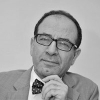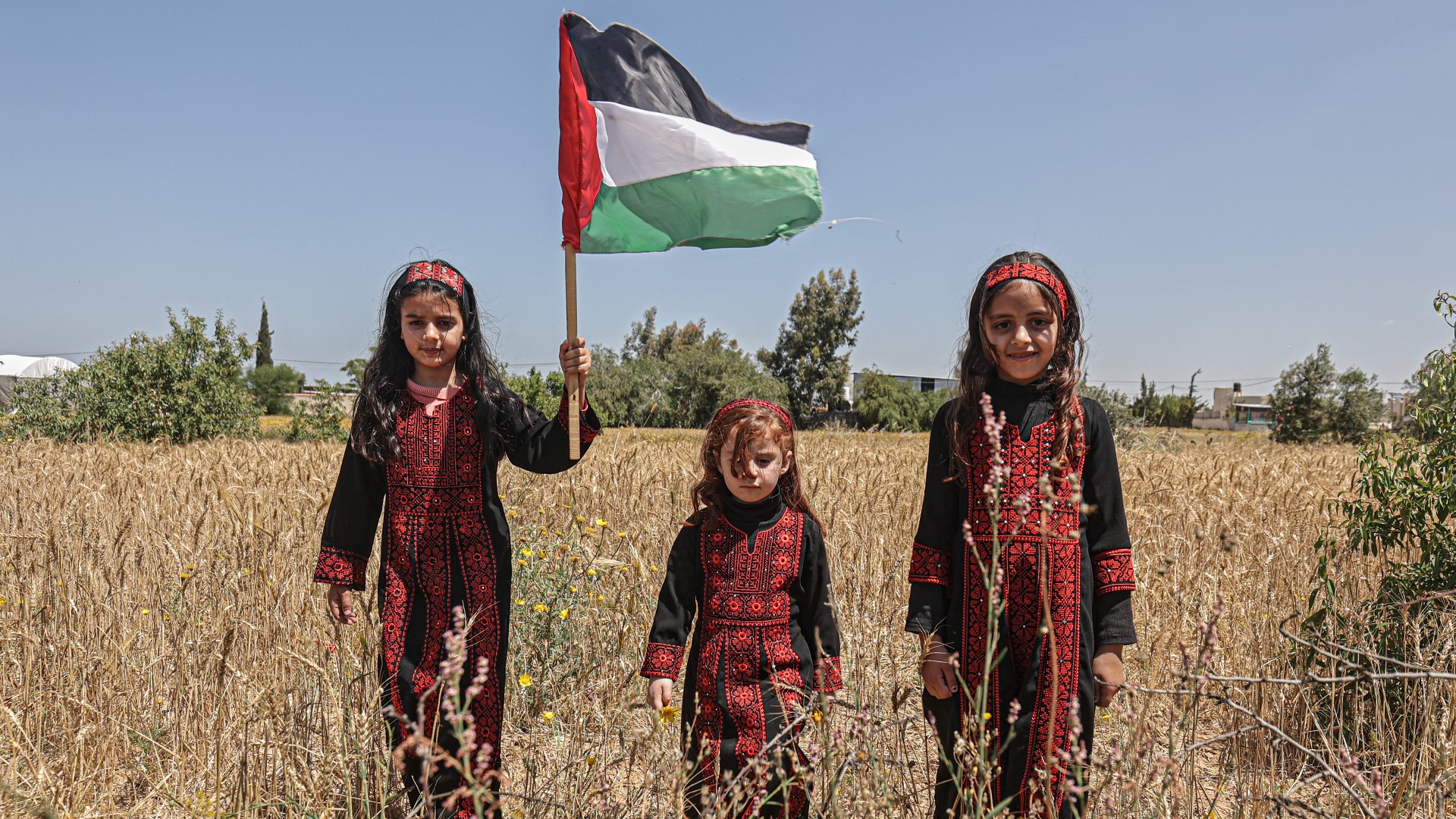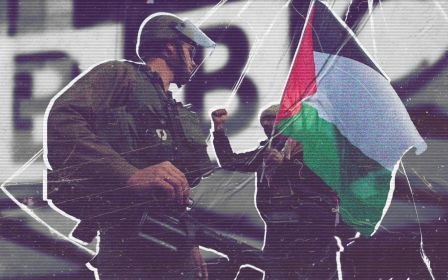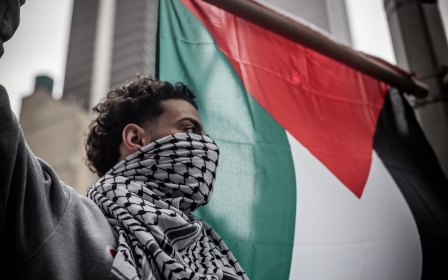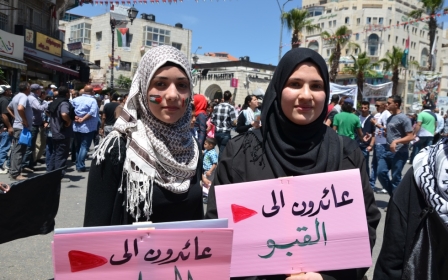Why the Nakba remains an open wound for the Palestinians
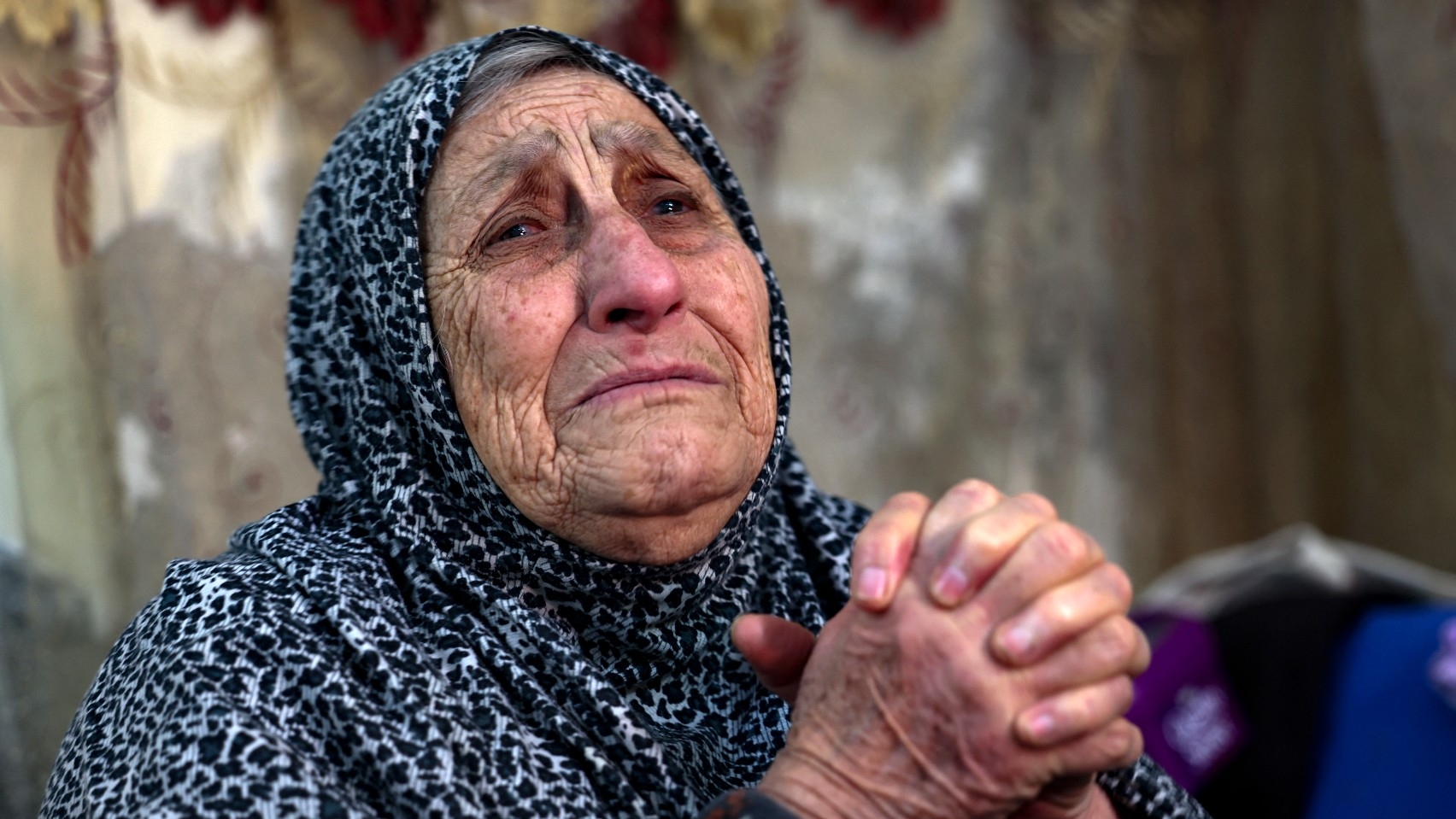
In her book, Unclaimed Experience, trauma scholar Cathy Caruth provides a psychoanalytic framework for understanding the impact of the Palestinian Nakba in, of, and beyond itself. She defines trauma as the "story of a wound that cries out, that addresses us to tell us of a reality or truth that is not otherwise available."
The Nakba indeed is a huge open wound in Palestinian history and memory that speaks to us, tenaciously and wilfully, to remind us of a Palestine in its totality that is not available to Palestinians.
For Palestinians living on Palestinian soil or in the shatat, the Palestinian diaspora, Palestine is the living site of a traumatic rupture that calls its victims back - reviving the image and memory of a place that for millennia was, literally, theirs.
The Nakba is the loss and never-ending search for recovery: the call to erase the erasure of the motherland and all it stands for.
For the majority of Arabs in Palestine and elsewhere, the Nakba, as trauma, represents the humiliating defeat of the indigenous people, the rightful owners of the fatherland, at the hands of a numerically weaker and usurping outsider, with naked assistance and active collusion by a morally corrupt imperial power.
New MEE newsletter: Jerusalem Dispatch
Sign up to get the latest insights and analysis on Israel-Palestine, alongside Turkey Unpacked and other MEE newsletters
Relying on the late George Tarabishi’s analysis of the defeat of 1967 as an Arab trauma, we may ascribe the lasting effect of the Nakba as a gushing wound in the war’s unforeseen and nightmarish outcome.
As an open wound, the Nakba heralded further defeats which not only deepened the impact of that original defeat but also paved the way for other crushing defeats and the incremental shameful capitulations we continue to witness in the miserable Arab political scene today.
Each abyss-inducing capitulation takes us Palestinians deeper into the anatomy of that open wound which, rightly, has been described as an act of rape ("ightisab"), the rape of a homeland and its intertwined culture that will always be remembered in full bloom.
The Nakba is not an event. It is an ongoing rupture in the genealogy of every Palestinian.
Beyond geography
Absence will, inevitably, dim the original memories of a pre-Nakba Palestine through the relentless passage of time. However, absence proverbially makes the heart grow fonder. The emotional attachment to Palestine and what was lost counters the corrosive effects of time.
And, surely, absence has the capacity to amplify the memories of the mother-cum-father-cum-home-land and regenerate their genealogies with new organic growth carrying in its sinews the sweet aromas, delicious tastes, tinted hews, and significant yet painful encounters of distant places and oscillating times.
The Nakba is the loss and never-ending search for recovery: the call to erase the erasure
Instead of receding into a faraway and regressively forgotten past, Palestine has in fact progressively expanded into new geographies, cultural spheres, and geopolitical arenas - bringing its descendants together intergenerationally through a liturgy of profound loss and solemn hope.
Despite the relentless erosion of time and efforts to erase its indigenous population, the Palestine of our ancestors has somehow surpassed itself, geographically, culturally, and politically.
Since the Nakba, Palestine has become an expansive and experientially enriched metonymic motif signalling belonging, resistance, and the determination to return to that place with new and emboldened humanistic resolve.
A few ethnographic vignettes would breathe life into what I have said above. From Sydney, Australia to Istanbul, Turkey, and from there to Cambridge, England; Edinburgh, Scotland, and onward to New York, US, a Palestinian would likely meet, as indeed I had, a little girl called Bisan, named after the ancient town of Bisan in Palestine.
Imprinting Palestine on the body of each one of those Bisans, the name is an act of commemoration and remembrance, paying homage to a lost place while, at the same time, enacting a communion among Palestinians, exhorting them to promise never to forget.
Having visited Bisan in Palestine a few times in the last two and a half decades to marvel at its rich layered history, I often wondered how I would feel if I were a Bisan admiring my namesake in an inverted sense of material loss and symbolic bodily recovery through onomastic reincarnation. Would I be sad? Would I be angry? Would I be hopeful? And what would I say to an Israeli hailing from California who had chosen to reside in my namesake in my lostland?
In giving names that evoke the memories of obliterated places, physically and cartographically, Palestinians carry their Palestine on their bodies, as if to commit to a covenant with the mother-cum-father-cum-home-cum-lost-land to always remember and always seek to return.
Closer to home, I remember how, at a very young age, my own two sons thought that by pasting the name Palestine to English maps of the region they would somehow make the return to their ancestral home possible for them and, most importantly, their Palestine-grieving parents.
At one point, I had to plead poverty to stop my sons from forcing me to buy fresh maps of that land, such was their determination. And, at one point in his sporting career, my elder son, a keen rower who rowed for Scotland in the under-18-year-old team, scoured the internet for rowing Palestinians to find out if they could form a team to represent Palestine, with big dreams to enter the Olympics. He almost succeeded.
‘Becoming’ Palestinian
As an open wound, the Nakba as trauma is imbued with ethical meanings and moral responsibilities that transcend Palestine as a place with limiting physical borders. For Palestine to speak to the world, Palestine must hail all those who reject injustice, oppression, and occupation, regardless of their ethnic, religious, political background, or lifestyle.
They must immerse themselves in Palestine as a cause, as South Africa had successfully become during its heroic struggle against apartheid and settler colonialism.
By transcending itself in this way, through the actions of its diasporic children and their loyal brethren in Palestine, Palestine will emerge as a cause celebre for those interested in mobilising for its liberation.
What matters here is becoming Palestinian, which is of a different moral and ethical order than just being Palestinian. Widening the circle of Palestinianhood in this way will not erase the trauma of the Nakba but will make its pain and suffering easier to navigate.
If we accept this, we must then accept that becoming Palestinian is an open invitation to all those who wish to embark on an open and arduous journey towards an ethically and morally defined political destination, a values-defined destination moulded by a commitment to peace, justice, and the erasure of erasure.
Being Palestinian in this sense would be neither necessary nor sufficient to becoming an actively engaged Palestinian under this expansive horizon.
This inclusive understanding of Palestine as a cause is consistent with the understanding of the Nakba as a trauma, an open wound. However, it is reasonable to expect that the category of being Palestinian demands of those who belong to it, through the accident of history, to lead the way or to offer those who are journeying on that way all the sustenance they will need, intellectually, emotionally and materially.
The views expressed in this article belong to the author and do not necessarily reflect the editorial policy of Middle East Eye.
Middle East Eye delivers independent and unrivalled coverage and analysis of the Middle East, North Africa and beyond. To learn more about republishing this content and the associated fees, please fill out this form. More about MEE can be found here.


